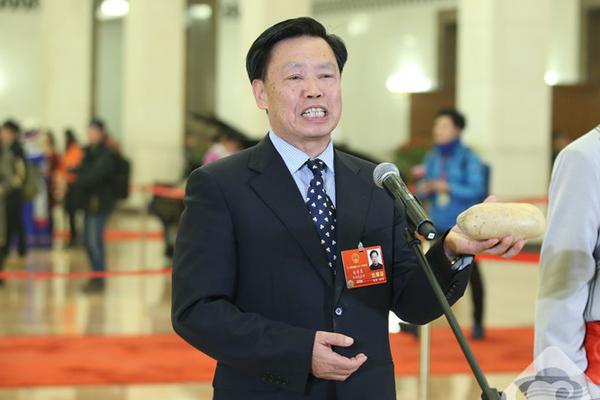
Short-term memory, long-term memory. Cognitive psychology regards memory as the process of coding, storing and extracting input information by the human brain. Memory is divided into three systems: instantaneous memory, short-term memory and long-term memory, which is based on the different ways of encoding, storing and extracting information, as well as the different length of information storage time.
What are the three memory systems: memory is also regarded as the process of the human brain encoding, storing and extracting input information, and according to the different ways of coding, storing and extracting information, as well as the different length of information storage time, memory is divided into instantaneous memory, short-term memory and long-term memory. A system.
What are the three memory systems? According to the different ways of encoding, storing and extracting information, and the different length of information storage time, memory is divided into three systems: instantaneous memory, short-term memory and long-term memory.
The three stages of memory are sensory memory, short-term memory and long-term memory. Sensory memory: Sensory memory refers to the information we receive through various sensory organs, such as vision, hearing, touch, taste and smell.
What are the three memory systems? According to the different ways of coding, storage and extraction of information, and the different length of information storage time, memory is divided into instantaneous memory, short-term memory and long-term memory. Remember the three systems.
The coding method of instantaneous memory, that is, the way instantaneous memory remembers information, is the image of external stimuli. Because the information of instantaneous memory is first registered in the sensory channel in the form of sensory images, instantaneous memory has a distinct image. The capacity of instantaneous memory is large, but the retention time is very short.
Perception is the cognitive process of giving meaning through information. ( 2) Working memory. It is the memory of processing and encoding information in the human brain within a minute. The holding time is about 5 seconds to 1 minute. Short-term memory also includes direct memory and working memory.

Weber's score), which is only applicable to medium-intensity stimuli, which is different from the Weber's score of sensory organs (2) Fechner's Law: 1860, using the differential threshold as the unit of sensation, a stimulus was measured. The difference threshold contained is believed to be the psychological intensity caused by this stimulus.
The concept of memory is the psychological process of accumulating, preserving and extracting individual experience in the mind.From storing into the brain to extracting and applying again, this complete process is collectively called memory.
Long-term memory refers to the memory maintained for more than a minute after external stimuli appear in a very short time. Features: The capacity of memory is unlimited, whether it is the type or quantity of information. Coding Semantic coding: Use words to process information and organize coding according to the meaning of the material.
Memory and memory process Definition: It is the reaction of past experience in the mind. Past experience refers to the perception of things, thinking about problems, the emotional experience caused by things, and the actions that have been carried out in the past. Function: It is the root of wisdom and the cornerstone of psychological development.
Casino Plus free 100-APP, download it now, new users will receive a novice gift pack.
Short-term memory, long-term memory. Cognitive psychology regards memory as the process of coding, storing and extracting input information by the human brain. Memory is divided into three systems: instantaneous memory, short-term memory and long-term memory, which is based on the different ways of encoding, storing and extracting information, as well as the different length of information storage time.
What are the three memory systems: memory is also regarded as the process of the human brain encoding, storing and extracting input information, and according to the different ways of coding, storing and extracting information, as well as the different length of information storage time, memory is divided into instantaneous memory, short-term memory and long-term memory. A system.
What are the three memory systems? According to the different ways of encoding, storing and extracting information, and the different length of information storage time, memory is divided into three systems: instantaneous memory, short-term memory and long-term memory.
The three stages of memory are sensory memory, short-term memory and long-term memory. Sensory memory: Sensory memory refers to the information we receive through various sensory organs, such as vision, hearing, touch, taste and smell.
What are the three memory systems? According to the different ways of coding, storage and extraction of information, and the different length of information storage time, memory is divided into instantaneous memory, short-term memory and long-term memory. Remember the three systems.
The coding method of instantaneous memory, that is, the way instantaneous memory remembers information, is the image of external stimuli. Because the information of instantaneous memory is first registered in the sensory channel in the form of sensory images, instantaneous memory has a distinct image. The capacity of instantaneous memory is large, but the retention time is very short.
Perception is the cognitive process of giving meaning through information. ( 2) Working memory. It is the memory of processing and encoding information in the human brain within a minute. The holding time is about 5 seconds to 1 minute. Short-term memory also includes direct memory and working memory.

Weber's score), which is only applicable to medium-intensity stimuli, which is different from the Weber's score of sensory organs (2) Fechner's Law: 1860, using the differential threshold as the unit of sensation, a stimulus was measured. The difference threshold contained is believed to be the psychological intensity caused by this stimulus.
The concept of memory is the psychological process of accumulating, preserving and extracting individual experience in the mind.From storing into the brain to extracting and applying again, this complete process is collectively called memory.
Long-term memory refers to the memory maintained for more than a minute after external stimuli appear in a very short time. Features: The capacity of memory is unlimited, whether it is the type or quantity of information. Coding Semantic coding: Use words to process information and organize coding according to the meaning of the material.
Memory and memory process Definition: It is the reaction of past experience in the mind. Past experience refers to the perception of things, thinking about problems, the emotional experience caused by things, and the actions that have been carried out in the past. Function: It is the root of wisdom and the cornerstone of psychological development.
100 free bonus casino no deposit GCash
author: 2025-01-10 11:58 Arena Plus login
Arena Plus login
744.67MB
Check bingo plus update today
bingo plus update today
173.43MB
Check bingo plus update today Philippines
bingo plus update today Philippines
984.28MB
Check UEFA European championship
UEFA European championship
151.89MB
Check Casino redeem
Casino redeem
794.58MB
Check bingo plus update today
bingo plus update today
297.91MB
Check Hearthstone Arena Tier List
Hearthstone Arena Tier List
118.28MB
Check DigiPlus
DigiPlus
985.54MB
Check App to watch Champions League live free
App to watch Champions League live free
293.42MB
Check DigiPlus stock
DigiPlus stock
131.38MB
Check Casino Plus app
Casino Plus app
627.53MB
Check Casino Plus free 100
Casino Plus free 100
989.23MB
Check bingo plus update today
bingo plus update today
979.95MB
Check TNT Sports
TNT Sports
648.42MB
Check Casino redeem
Casino redeem
687.75MB
Check UEFA Champions League live
UEFA Champions League live
377.86MB
Check UEFA Champions League live
UEFA Champions League live
969.87MB
Check Arena Plus login
Arena Plus login
722.55MB
Check Hearthstone Arena Tier List
Hearthstone Arena Tier List
715.66MB
Check Arena plus APK
Arena plus APK
541.83MB
Check Walletinvestor digi plus
Walletinvestor digi plus
672.11MB
Check UEFA European championship
UEFA European championship
874.49MB
Check PAGCOR online casino free 100
PAGCOR online casino free 100
926.96MB
Check Casino Plus GCash login
Casino Plus GCash login
397.84MB
Check Walletinvestor digi plus
Walletinvestor digi plus
571.58MB
Check European Cup live
European Cup live
948.69MB
Check Hearthstone deck
Hearthstone deck
978.18MB
Check Hearthstone Arena win rate
Hearthstone Arena win rate
677.51MB
Check UEFA Champions League live streaming free
UEFA Champions League live streaming free
297.73MB
Check DigiPlus Philippine
DigiPlus Philippine
141.33MB
Check Hearthstone deck
Hearthstone deck
194.78MB
Check Hearthstone Arena class tier list 2024
Hearthstone Arena class tier list 2024
337.14MB
Check Walletinvestor digi plus
Walletinvestor digi plus
952.49MB
Check UEFA Champions League live streaming free
UEFA Champions League live streaming free
727.84MB
Check UEFA Champions League
UEFA Champions League
493.34MB
Check Casino free 100 no deposit
Casino free 100 no deposit
597.81MB
Check
Scan to install
Casino Plus free 100 to discover more
Netizen comments More
2908 Hearthstone Arena win rate
2025-01-10 13:39 recommend
1916 Casino Plus login register
2025-01-10 13:27 recommend
497 Casino Plus login register
2025-01-10 12:46 recommend
1087 Champions League
2025-01-10 12:41 recommend
1441 UEFA Champions League live
2025-01-10 11:04 recommend